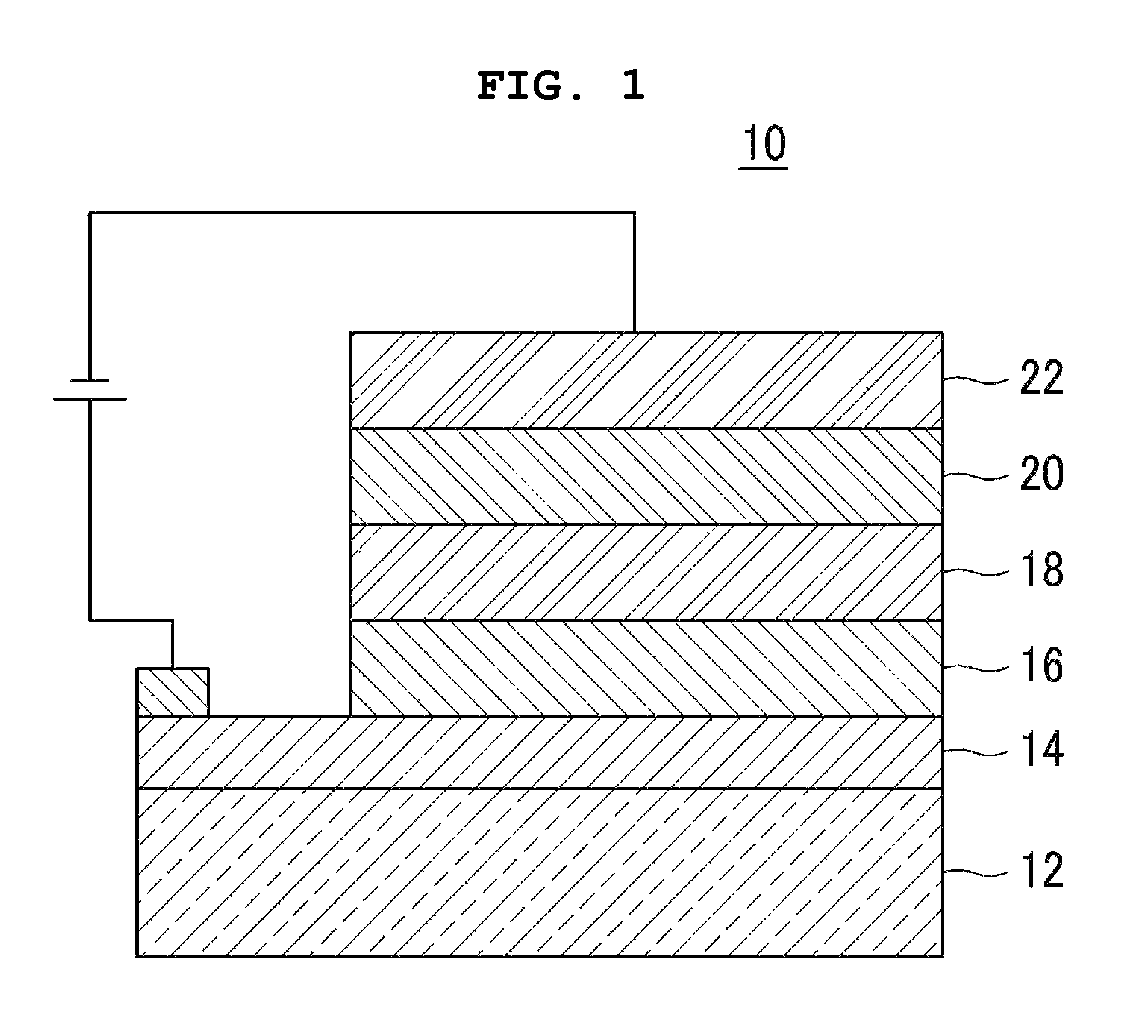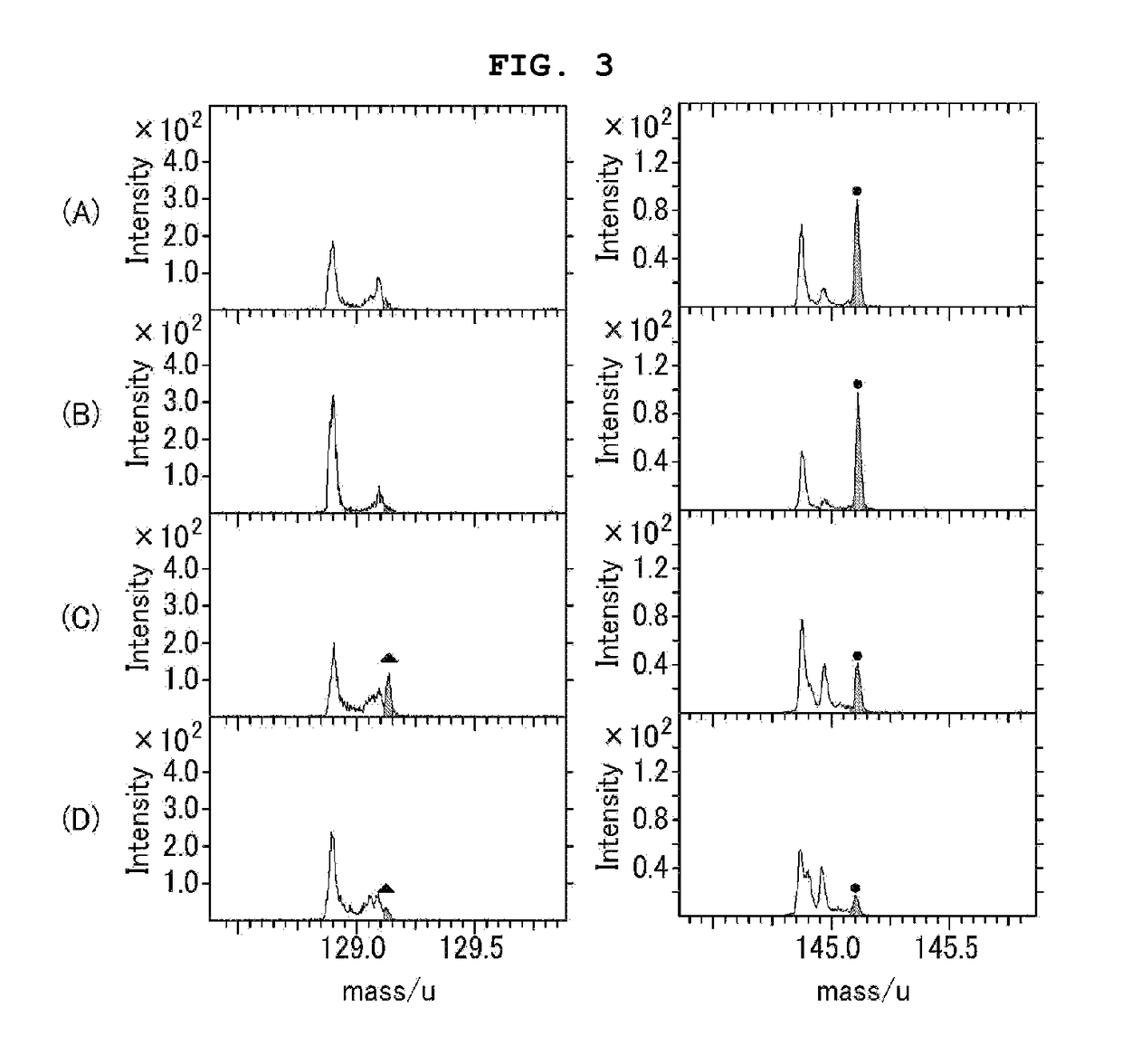Quantum dot electroluminescent device and method for fabricating the same
a quantum dot electroluminescent and electroluminescent device technology, applied in the direction of electroluminescent light sources, chemistry apparatus and processes, and light compositions, can solve the problems of difficult migration of holes throughout the layer, problems with the qd-el device,
- Summary
- Abstract
- Description
- Claims
- Application Information
AI Technical Summary
Benefits of technology
Problems solved by technology
Method used
Image
Examples
example 1
Fabrication of the QD-EL Device
[0103]After an ITO anode is formed on the surface of a glass substrate, a PEDOT HTL is formed on the anode. Poly[(9,9-dioctylfluorenyl-2,7-diyl)-co-(4,4′-(N-(4-sec-butylphenyl))diphenylamine)] (“TFB”) is coated onto the PEDOT HTL that is rotating at a rate of 2,000 rpm inside a glove box. The PEDOT HTL is then thermally treated at 180° C. for 30 minutes to form a 20 nm thick HTL. Then, the colloidal solution containing the QDs as prepared in Preparative Example 1 is spin-coated onto the HTL to form a QD coating. The QD coating is then dipped into the surface modifying composition of Preparative Example 2 at 60° C. for 15 minutes to modify the surface of the HTL. The surface modification gives a QD light-emitting layer. A TiO2 ETL and an Al cathode are formed sequentially on the QD light-emitting layer to complete the fabrication of a QD-EL device.
example 2
Fabrication of QD-EL Device
[0104]After an ITO anode is formed on the surface of a glass substrate, a PEDOT HTL is formed on the anode. Poly[(9,9-dioctylfluorenyl-2,7-diyl)-co-(4,4′-(N-(4-sec-butylphenyl))diphenylamine)] (“TFB”) is coated onto the PEDOT HTL that is rotating at a rate of 2,000 rpm inside a glove box. The PEDOT HTL is then thermally treated at 180° C. for 30 minutes to form a 20 nm thick HTL. Then, the colloidal solution containing the QDs as prepared in Preparative Example 1 is spin-coated onto the HTL to form a QD coating. The QD coating is then dipped into the surface modifying composition of Preparative Example 2 at 60° C. for 15 minutes, and then annealed at 180° C. to modify the surface of the HTL. The surface modification gives a QD light-emitting layer. A TiO2 ETL and an Al cathode are formed sequentially on the QD light-emitting layer to complete the fabrication of a QD-EL device.
PUM
| Property | Measurement | Unit |
|---|---|---|
| HOMO | aaaaa | aaaaa |
| HOMO | aaaaa | aaaaa |
| HOMO | aaaaa | aaaaa |
Abstract
Description
Claims
Application Information
 Login to View More
Login to View More - R&D
- Intellectual Property
- Life Sciences
- Materials
- Tech Scout
- Unparalleled Data Quality
- Higher Quality Content
- 60% Fewer Hallucinations
Browse by: Latest US Patents, China's latest patents, Technical Efficacy Thesaurus, Application Domain, Technology Topic, Popular Technical Reports.
© 2025 PatSnap. All rights reserved.Legal|Privacy policy|Modern Slavery Act Transparency Statement|Sitemap|About US| Contact US: help@patsnap.com



